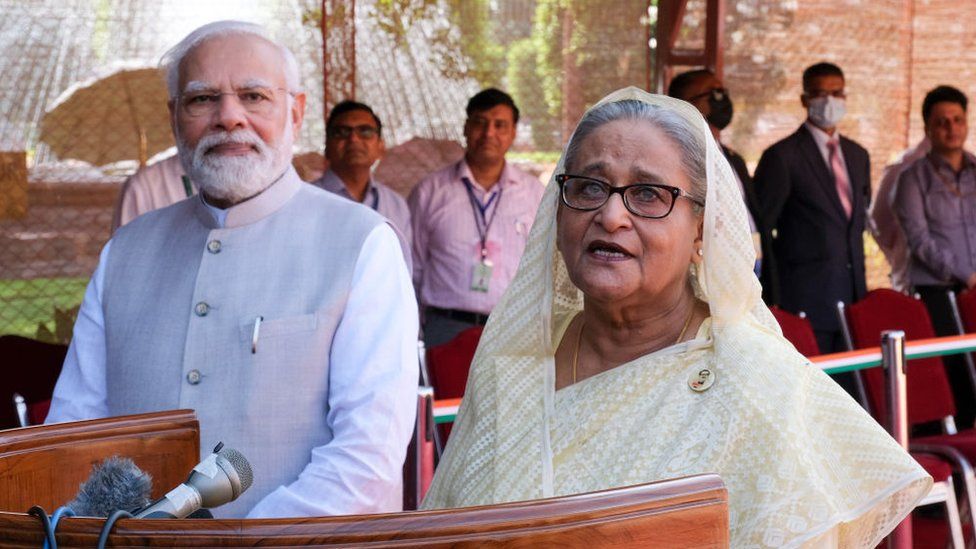-

-
-
Loading

Loading

The upcoming general elections in Bangladesh have sparked intense discussions surrounding the role of neighboring India in the country. Prime Minister Sheikh Hasina is seeking a fourth consecutive term, and her victory appears likely as the main opposition parties have boycotted the elections. The opposition parties, particularly the Bangladesh Nationalist Party (BNP) and its allies, have expressed their lack of faith in a free and fair election under Ms. Hasina's leadership. They have demanded her resignation and the establishment of a neutral interim government to oversee the polls, but these demands have been rejected by the Prime Minister. India, Bangladesh's strategic partner and close ally, considers having a friendly regime in Dhaka crucial to the security of its northeastern states. Ms. Hasina has developed close ties with India since her first election in 1996, and India openly supports her return to power. However, this backing has faced criticism from the BNP, who argue that India should support the people of Bangladesh as a whole, not a specific party. The BNP accuses India of interfering in the Bangladesh polls and claims that it is alienating the people of Bangladesh by supporting what they consider a "dummy election." Indian officials have refused to comment on these allegations, stating that elections are a domestic matter for Bangladesh. India is also concerned that the return of the BNP and the Jamaat-e-Islami party could lead to the resurgence of Islamists in Bangladesh, as was the case during their previous coalition government from 2001 to 2006. The rise of these groups resulted in various security issues, including an assassination attempt on Ms. Hasina in 2004 and the capture of trucks filled with arms from Pakistan. In contrast, Ms. Hasina has garnered favor from India by taking action against ethnic insurgent groups from India's northeast that were operating from Bangladesh. The relationship between India and Bangladesh extends beyond strategic interests. They share close cultural, ethnic, and linguistic ties, and India played a significant role in Bangladesh's independence from Pakistan in 1971. Bangladesh relies on India for the supply of essential commodities, and India has provided over $7 billion in Lines of Credit for infrastructure and development projects since 2010. However, there have been challenges in their relationship over the years, such as disputes over water resources and accusations of meddling in each other's internal affairs. Critics argue that while India has gained access to transport goods to its northeastern states through Bangladesh, Dhaka still lacks full-fledged overland trade with Nepal and Bhutan across Indian territory. India also desires road and river transport access through Bangladesh for its northeastern states to avoid the strategically vulnerable "chicken's neck" corridor between Nepal, Bangladesh, and Bhutan, especially in potential conflicts with China. The article highlights the suspicions and concerns of some Bangladeshis towards India. Some perceive India as unfriendly, particularly considering the discrimination against religious minorities in India and the alleged infiltration of "Bangladeshi illegal immigrants." Conversely, India is concerned about the potential maltreatment of Hindu minorities in Bangladesh and fears that pushing Sheikh Hasina towards Chinese influence could cause strategic troubles with China. Overall, while India sees Sheikh Hasina's leadership as beneficial to its interests, effectively reaching out to the people of Bangladesh remains a challenge. The upcoming elections will play a significant role in shaping the future of India-Bangladesh relations.